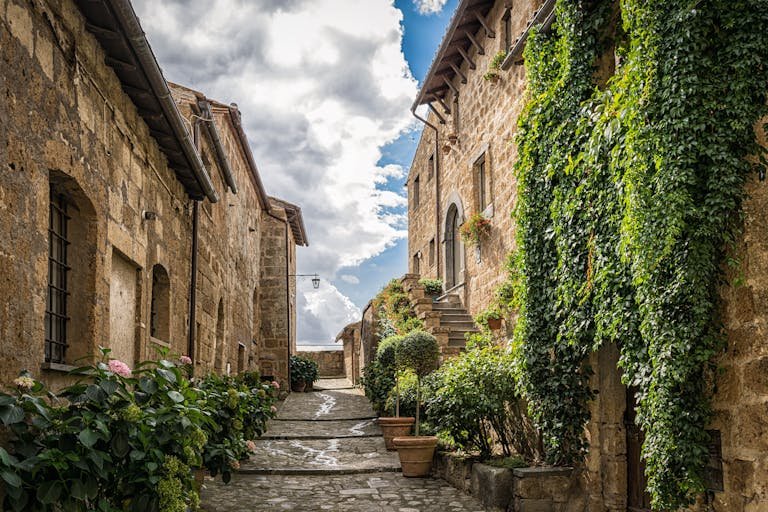Countries Americans Are Retiring To: Discovering Dream Destinations for Your Golden Years
As you consider the next chapter of your life, the prospect of retiring abroad might be increasingly appealing. Many Americans are seeking warmer climates, lower living costs, and vibrant cultures that can enrich their retirement years.
Countries like Costa Rica, Ecuador, and Portugal are becoming top choices for retirees looking for a blend of affordability and quality of life.
Retiring in a new country doesn’t just mean a change of scenery; it offers a fresh perspective on life that can be exciting and fulfilling. Imagine waking up to beautiful landscapes, enjoying diverse cuisines, and connecting with fellow expats from around the world.
Exploring these countries unveils unique retirement perks and benefits that make them attractive options for your next adventure.
If you’re ready to discover where to find sunny beaches, scenic mountains, and welcoming communities, you’re in the right place. This blog post will guide you through the best countries Americans are calling home in retirement, helping you envision the lifestyle you’ve always dreamed of.
Top Destinations for American Retirees
When considering retirement abroad, several countries stand out due to their affordability, climate, and expat-friendly environments. Each of these destinations offers unique advantages tailored to retirees seeking a new lifestyle.
Mexico
Mexico remains a top choice for American retirees. The country boasts a low cost of living, rich culture, and beautiful landscapes.
Major expat areas such as Puerto Vallarta, San Miguel de Allende, and Lake Chapala offer vibrant communities.
Healthcare is both accessible and affordable, often featuring English-speaking professionals. Retirees can enjoy diverse cuisine, historical sites, and warm weather year-round. The proximity to the U.S. allows for easy visits from family and friends.
Key Benefits:
- Cost of Living: Typically 20-50% lower than in the U.S.
- Healthcare: Quality medical services at a fraction of U.S. prices.
- Climate: Warm and pleasant, especially in coastal regions.
Panama
Panama is increasingly popular among retirees, thanks to its retirement visa program that is easy to navigate. The country features beautiful beaches and mountains, offering a variety of climates to suit your preferences.
The cost of living is reasonable, and many expats find purchasing property straightforward. The city of Panama offers a cosmopolitan lifestyle, with modern amenities and cultural attractions.
Panama also has a well-regarded healthcare system, with many doctors trained in the U.S. or Europe. The country’s proximity to the U.S. allows for frequent visits home.
Key Benefits:
- Retirement Incentives: The Pensionado Program offers discounts for retirees.
- Transportation: Numerous options for getting around easily.
- Safety: Generally considered safe, with low crime rates in expat areas.
Costa Rica
Costa Rica is famous for its “pura vida” lifestyle, emphasizing a relaxed and fulfilling life. It offers stunning natural beauty, including beaches, rainforests, and volcanoes, making it a paradise for outdoor enthusiasts.
Healthcare in Costa Rica is high-quality and affordable, often surpassing U.S. standards. Expats frequently praise the friendly locals and strong sense of community. The cost of living can vary, but many find it manageable.
You can enjoy a mix of urban and rural living, with cities like San José offering culture and countryside regions providing tranquility.
Key Benefits:
- Environment: Excellent biodiversity and outdoor activities.
- Cost of Living: Generally 30-40% lower than in the U.S.
- Healthcare: Public and private options are both reliable.
Portugal
Portugal has gained popularity among American retirees, known for its stunning coastline, rich culture, and excellent weather. Cities like Lisbon and Porto provide a blend of modern conveniences and historical charm.
Affordability is a significant factor, with lower living costs compared to many Western European nations. The country also offers an efficient public healthcare system, with options for private healthcare if preferred.
English is widely spoken, especially in urban areas, easing the transition for many retirees. Additionally, Portugal’s ranking as one of the safest countries in the world enhances its appeal.
Key Benefits:
- Cost of Living: Affordable housing, food, and services.
- Safety: Ranked as the 7th safest country globally.
- Community: A friendly and welcoming atmosphere for expats.
These destinations all provide unique advantages that can enhance your retirement experience, making them worth considering for your next chapter.
Factors in Choosing a Retirement Country
When selecting a retirement destination, various important factors come into play that can significantly impact your quality of life. Understanding these factors will help you make an informed decision tailored to your lifestyle preferences and needs.
Cost of Living
The cost of living is crucial when considering where to retire. This encompasses housing, groceries, transportation, and entertainment. You want to ensure that your retirement savings can sustain a comfortable lifestyle without financial strain.
For example, countries like Portugal and Mexico offer lower living costs compared to the U.S. You could expect to pay around 30–50% less for housing and daily expenses in these regions.
Researching local prices for services you frequently use can provide clarity. Utilize online cost of living calculators to compare potential retirement spots.
Healthcare Quality and Accessibility
Access to quality healthcare is essential for retirees. As you age, you may require more medical attention, making it critical to choose a country with robust healthcare systems.
Many retirees favor countries with public health systems. For instance, Portugal provides excellent public healthcare through the Serviço Nacional de Saúde, which is available to residents.
Evaluate healthcare facilities, availability of specialists, and language barriers when considering your options. A good healthcare system can ease worries and enhance your overall well-being.
Climate and Environment
Your daily comfort can be greatly influenced by the local climate. Some people prefer warm, sunny weather year-round, while others may enjoy distinct seasons.
Research climate patterns, including average temperatures and rainfall. You might find that places like Costa Rica offer a tropical climate, ideal for outdoor enthusiasts.
Additionally, natural surroundings like beaches, mountains, and parks can affect your lifestyle choices. If you love nature, prioritize locations that offer easy access to outdoor activities.
Residency Requirements and Visa Policies
Each country has different residency and visa policies that can affect your retirement plans. Before making a decision, you should familiarize yourself with the legal requirements for living in your chosen destination.
Some countries offer retirement visas that cater specifically to retirees, often with simplified application processes. For example, Mexico has a favorable Temporary Resident Visa for retirees that permits long stays.
Review application documents, renewal processes, and any financial requirements involved. Understanding these policies can help you avoid unexpected challenges when relocating.
Financial Considerations
When planning for retirement abroad, understanding financial aspects is crucial. This includes the implications of taxes on your income and how to effectively manage your retirement funds while living in a different country.
Tax Implications for Expats
As an American expat, you remain subject to U.S. taxes even while living overseas. The Foreign Earned Income Exclusion (FEIE) can help reduce your taxable income, allowing you to exclude up to $108,700 (for 2021) if you meet certain requirements.
Additionally, many countries have tax treaties with the U.S. that can prevent double taxation. You should consult a tax professional who specializes in expat taxation to navigate these regulations. Understanding filing requirements, such as the Foreign Bank Account Report (FBAR), is also essential to avoid penalties.
Managing Retirement Funds Abroad
Handling your retirement funds while living abroad requires careful planning. It’s important to assess how your accounts will be taxed in both the U.S. and your new country.
Consider where your retirement income will come from—Social Security benefits, pensions, or savings accounts. Depending on your situation, you may need to set up a foreign bank account to manage costs more effectively.
Also, familiarize yourself with local regulations concerning withdrawals and transfers. Having a reliable financial advisor can greatly simplify this process and help you plan for currency fluctuations and potential fees.
Cultural and Lifestyle Factors
When considering retirement abroad, cultural and lifestyle factors play a significant role in your overall experience. Understanding the local language and integrating into the community can enhance your sense of belonging and improve day-to-day life.
Language and Communication
Language can significantly impact your experience in a new country. If you move to a location where English is not the primary language, you might feel isolated if you don’t learn the basics. Consider enrolling in language classes before your move.
It’s also helpful to download translation apps on your phone. Here are some tips for managing language barriers:
- Learn Key Phrases: Focus on common greetings and essential phrases.
- Practice Regularly: Engage in conversation with locals to build confidence.
- Be Patient: Understanding accents and dialects takes time.
Embracing the local language fosters connections and can make everyday tasks easier.
Community and Social Integration
Becoming part of your new community is crucial for a fulfilling retirement. Look for local groups, clubs, or classes that align with your interests. Whether it’s crafting, cooking, or sports, these activities provide opportunities to meet people.
Engaging with neighbors can also greatly enhance your experience. Here are ways to build social connections:
- Attend Cultural Events: Participate in local festivals and holidays to immerse yourself in the culture.
- Volunteer: Consider giving your time to community service projects.
- Join Expat Groups: Connect with other retirees who share similar experiences.
By actively participating in your new environment, you create meaningful relationships that enrich your retirement experience.
Preparation for Relocating
Relocating to a new country for retirement involves several important steps. You need to focus on understanding legal requirements and managing the logistics of your move to ensure a smooth transition.
Legal and Documentation Advice
Before you move, check the visa requirements of your chosen destination. Many countries offer options for retirees, such as retirement visas or long-term residency permits. For instance, Portugal provides the D7 visa, which caters to those with stable passive income.
Additionally, ensure your passport is valid for at least six months beyond your intended stay. Gather critical documents, including your birth certificate, marriage certificate, and financial statements. It’s wise to have these translated into the official language of the country you’re moving to.
Don’t forget to consult with an immigration expert to understand any tax implications or residency laws that may apply to you. Keeping your paperwork organized will save you headaches later!
Moving and Shipping Personal Belongings
When planning your move, assess what personal belongings are essential. Create a list to help prioritize items you want to take with you.
Consider shipping vs. purchasing new items abroad.
Shipping can be costly and time-consuming, often involving customs regulations. To avoid this, research reputable international moving companies. Obtain multiple quotes to find the best option.
Make sure to understand the shipping times and costs involved.
You may also want to consider selling or donating larger items, such as furniture, to simplify the moving process. Look into local organizations that accept donations. This not only reduces shipping expenses but can also be rewarding.
Finally, check restrictions on items you can bring to your new country, such as certain foods or plants, to avoid any surprises at customs.






